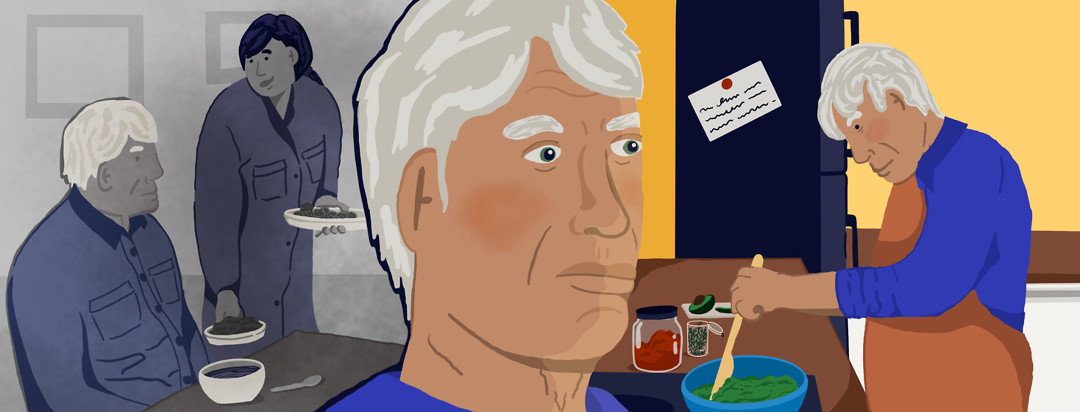Beyond Denial: Anosognosia and Alzheimer's Disease
"The doctors do not know what they are talking about. I don't have Alzheimer's disease!" This probably sounds familiar to some of you reading this right now.
A lot of our loved ones with Alzheimer's disease might say this often. It has to be that our loved ones are in denial. But what if I told you that it might be more than denial?
What is anosognosia?
Anosognosia is a person's inaccurate assessment of their limitations in daily activities. Anosognosia is pronounced uh-no-sog-NOH-zee-uh.1
In people with Alzheimer's, anosognosia can show up as a lack of awareness of impairments in activities of daily living (ADLs) or as a lack of awareness of neuropsychological deficits.1
One study reported that anosognosia is very common in people with Alzheimer's disease. Researchers estimate that more than 8 out of 10 people with Alzheimer's have some form of anosognosia.2
Why does anosognosia in Alzheimer's happen?
Experts in the field of Alzheimer's believe anosognosia occurs when the frontal lobe of a person's brain deteriorates or becomes damaged. The frontal lobe is in charge of our ability to:1
- Think abstractly
- Perceive
- Problem-solve
- Socialize
Damage to the frontal lobe will cause a person to have problems with the above-mentioned skills.
Is it denial or anosognosia?
The lack of awareness one has with anosognosia is very different from the initial shock and denial a person may feel after their diagnosis. The brain changes that come with Alzheimer's disease and other other forms of dementia may leave the person believing they are perfectly healthy.1
A person with anosognosia in Alzheimer's can experience a selective or complete lack of awareness. Your loved one's physician can run very specific tests to help diagnose the condition.
There are 5 signs your loved one has dementia with anosognosia:3
- Unable to maintain normal everyday tasks and/or personal hygiene.
- Showing less inhibition and increased spontaneity in conversations, without realizing or being concerned about their behavior.
- Uncharacteristic or decreased ability to manage their money or monthly bills.
- Making up answers to things while believing what they are saying is true.
- Exhibiting poor decision-making, decreased self-care, and quickness to anger when their forgetfulness is brought up.
Anosognosia and Alzheimer's caregiving
Anosognosia can be challenging for caregivers of individuals with Alzheimer's disease and other dementias. Our loved ones can be completely convinced they are healthy. They may even refuse medications, treatments, and medical evaluations. This can lead to extreme frustration among caregivers.
Here are a few tips to help caregivers relate better to their loved one with Alzheimer's disease and anosognosia:3
- Provide structure and a schedule of daily tasks.
- Work together on money management and cleaning tasks.
- Remain focused and calm when voicing any concerns.
- Schedule activities and appointments in the morning when possible, when your loved one is more rested.
- As always, be gentle, empathetic, and encouraging.

Join the conversation